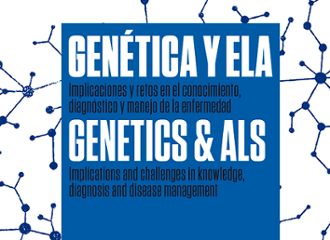Research projects
Start of main content
Development and Application of saRNAs for the Treatment of Rare Monogenic Diseases
22st national competition for scientific and technical research
Rare diseases

Senior Researcher : María Luisa Cayuela Fuentes
Abstract
In the last 25 years, the genes responsible for 50% of the 7,000 rare monogenic diseases have been identified. These diseases, numbering between 5,000 and 8,000, affect a significant portion of the global population. Advances in genomic technologies have facilitated the identification of genes involved in monogenic diseases, which are caused by mutations in a single gene with different inheritance patterns. This has improved our understanding of pathogenic mechanisms such as haploinsufficiency, where insufficient protein production leads to disease.
Despite these advances, only 5% of rare diseases have available treatments. There is a significant gap between gene identification and the development of effective therapies, mainly due to the lack of focus on translational research for these diseases. Creative strategies, such as low-cost and low-risk research programs, are needed. Most genetic disorders can be considered dysregulations of gene dosage, suggesting the possibility of therapies based on DNA or protein replacement, or increasing their levels.
An innovative solution lies in small activating RNAs (saRNAs), 21-nucleotide molecules capable of activating endogenous genes by binding to specific promoters and recruiting the transcriptional machinery. Our team has developed the saRNA T1000, which effectively activates key genes involved in the formation of myeloid cells in diseases such as dyskeratosis congenita (DC) and congenital neutropenias (CN). Now, we aim to expand this technology to address other rare diseases (RDs) such as DDX3X Syndrome.
Our approach includes designing saRNAs to activate wild-type alleles or compensatory genes, restoring protein functionality. Additionally, we will explore the use of RNA to induce the activation of redundant genes, offering new therapeutic possibilities. This project will also develop a bioinformatics workflow to facilitate the design and application of saRNAs for other diseases, maximizing efficiency in therapy development.
The potential of saRNAs has already been validated in clinical trials for liver cancer, reinforcing their viability for addressing rare diseases. This project not only focuses on specific conditions, promoting precision medicine, but also proposes a generalizable platform for designing RNAbased therapies, transforming the treatment of multiple rare diseases and improving patients' quality of life.
-
 Activities related
Activities related
-
 Projects related
Projects related
-
 News related
News related
-
 Publications related
Publications related
 Activities related
Activities related
-
26
Jun
2024
Conferencias La aventura de la ciencia Madrid, Miércoles 26 de junio de 2024, 19:00 horas
-
13
Feb
2025
17th edition. Cycle of conferences and debates in science Digital Twins: Technological Advances and Application Opportunities Madrid, Thursday, 13 February 2025, 17:30 hours
-
18
Feb
2025
Session New Therapies for the Inflammation Treatment Madrid, Feb 18th, 2025, Tuesday. 4PM
 Projects related
Projects related
- CHANNELOSOME RESCUING PEPTIDES IN THE TREATMENT OF ARRHYTHMIAS IN INHERITABLE HEART DISEASES 2024 Senior Researcher : José Jalife Research Centre or Institution : Centro Nacional de Investigaciones Cardiovasculares (CNIC). Madrid
- Mechanisms for sustaining mitochondrial genome integrity and function during hematopoiesis. 2024 Senior Researcher : Ana Victoria Lechuga Vieco Research Centre or Institution : Fundació Clínic per a la Recerca Biomèdica. Hospital Clínic. Barcelona
- Biocompatible nanoformulations: targeted delivery of bioactive compounds for the treatment of Inborn Errors of Metabolism 2024 Senior Researcher : Belén Pérez Research Centre or Institution : Departamento de Bioquímica y Biología Molecular. Facultad de Ciencias. Universidad Autónoma de Madrid
 News related
News related
 Publications related
Publications related


End of main content



